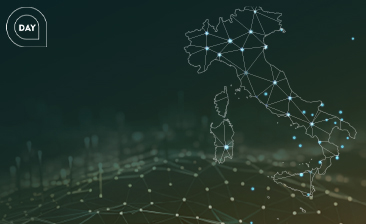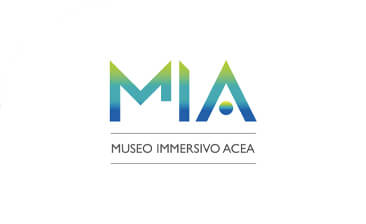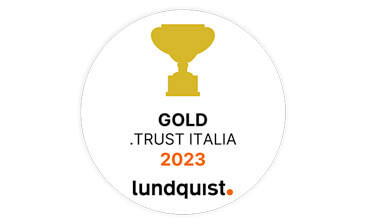
Acea for World Energy Saving Day
In 2023, Acea confirmed its leading position in the ranking list of the Carbon Disclosure Project (CDP), an independent non-profit organization supporting companies in measuring and communicating their own impact on climate change.
This expression denotes the gradual adoption of renewable energy sources, as wind, hydroelectric or photovoltaic, instead of sources producing high CO2 emissions: a transformation process, part of a wider path towards sustainable development strategies, also in consideration of circular economy.
The European Green Deal, i.e., a combination of political initiatives aimed at achieving climate neutrality within 2050, moves this way. In Italy, the Piano Nazionale di Ripresa e Resilienza (Recovery and Resilience Plan) has embraced the EU growth strategy, and the Ministry of Ecological Transition has allocated €69.8 billion for green revolution. The investments will interest four areas of action: building efficiency and upgrading; renewable sources and sustainable local mobility; protection and valorisation of territory and water resource; green companies and circular economy.
Moreover, during the Cop26 summit held in Glasgow, the UN countries signed various agreements. The first, and most important, intended to reduce coal usage. During the conference, the parties have reached different agreements on specific issues concerning energy transition, including a project to strengthen electric mobility between 2035 and 2040, a deal against deforestation and an initiative to reduce methane emissions by 30% within 2030. In November 2022, COP27 was held in Sharm el-Sheikh. The negotiations followed action lines related to five topics: decarbonisation, climate adaptation, nature, food and water. The Conference ended with the issuance of the Sharm el-Sheikh Implementation Plan, which confirms the contents ratified in the Glasgow Climate Pact (COP26). Furthermore, in 2023, during COP28 in Dubai the parties agreed on an Agreement to accelerate the global transition by promoting the "transition away" approach, with the inclusion for the first time in history of an explicit reference to overcoming fossil fuels to achieve climate neutrality by 2050. They also agreed to triple renewable energy capacity and double efforts in energy efficiency.
Over the years, our Group has launched various activities to give an active contribution to such ongoing changes.
With the 8, Acea Group aims at the energy transition in the context of the electrification of consumption and large network services.
Acea’s path for energy transition passes through a new reality within the Group: Acea Innovation, that was born to promote the development of new sustainable growth models for communities and territories where it operates.
Acea Innovation offers innovative solutions for companies, public administrations and citizens for three key sectors of the green revolution:
Acea Innovation is a stable partner of various Italian realities undertaking a path of energy transition – including companies, municipalities, but also private realities.
A clear example is symbolised by LUISS University Guido Carli that, in collaboration with Acea Innovation, has created a next-gen ICT platform providing services for electric mobility (car-sharing, shuttle vehicles and bike-sharing), besides introducing SmartComp in its canteens for local composting service.
Moreover, various municipalities have chosen to rely on Acea Innovation to undertake ecological transition starting from electric mobility. Consequently, charging stations have been installed in the cities of Rome and Terni to use electric means of transport, and other agreements have been signed with the cities of Benevento, Taranto, Baselga di Piné, Scarlino, Castel Gandolfo and Modica where installing charging stations is only the first step of a wider project which will continue with energetic upgrading.
Sustainable development projects, as those in collaboration with Italian municipalities, are fully coherent with Acea Innovation’s mission and in line with the strategic plan of the Group, providing support to public and private bodies, citizens and enterprise for implementing high-tech solutions in favour of ecological transition.
Multiutilities play a fundamental role in the collective path for ecological transition, considering their functionality in the territory to provide primary services in water, energy and environment sectors. In Acea, such path has already come true, in the form of a shared commitment with all internal and external stakeholders. In this way, everyone can take part in sustainable development for a better future.
Discover the latest news and initiatives of the Acea Group

Acea for World Energy Saving Day

Visit the virtual museum about the history of the Acea Group

The channel for the commercial requests on land urbanisation

Acea turns the spotlight on the Rome Film Festival 2023

Acea is in the "Gold class" in the .trust research

Read more about our culture of inclusiveness